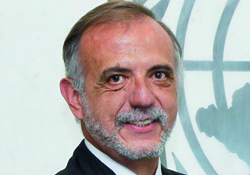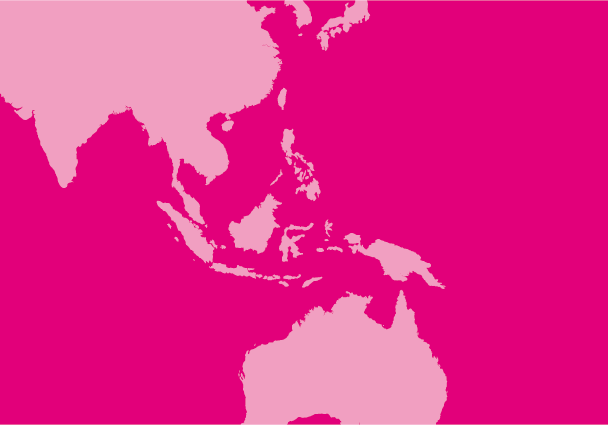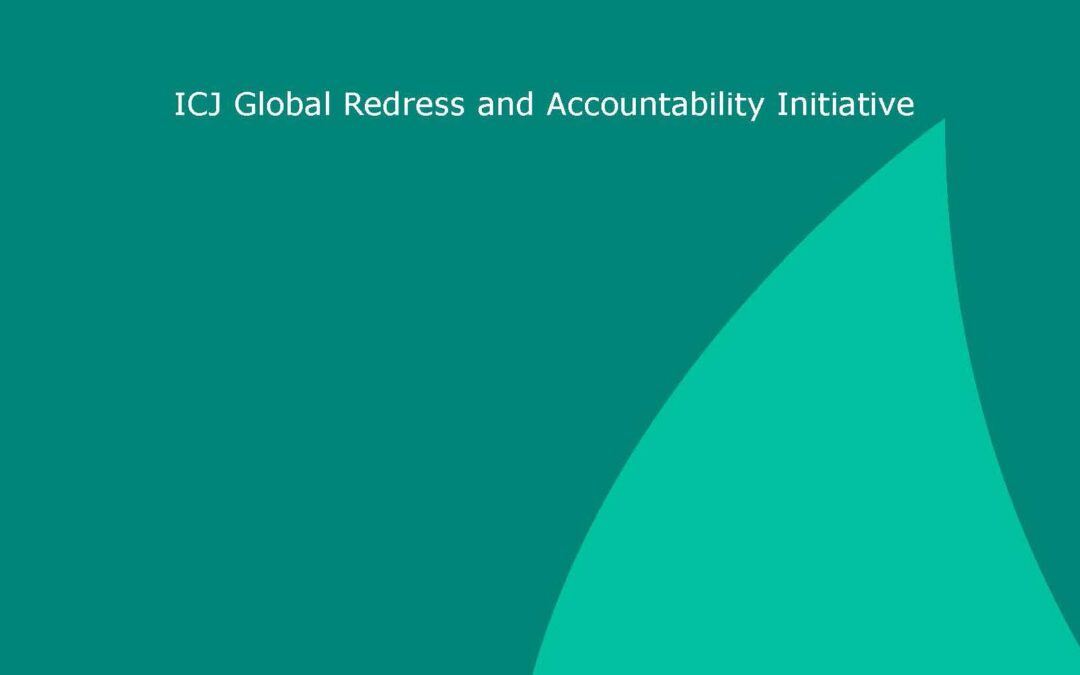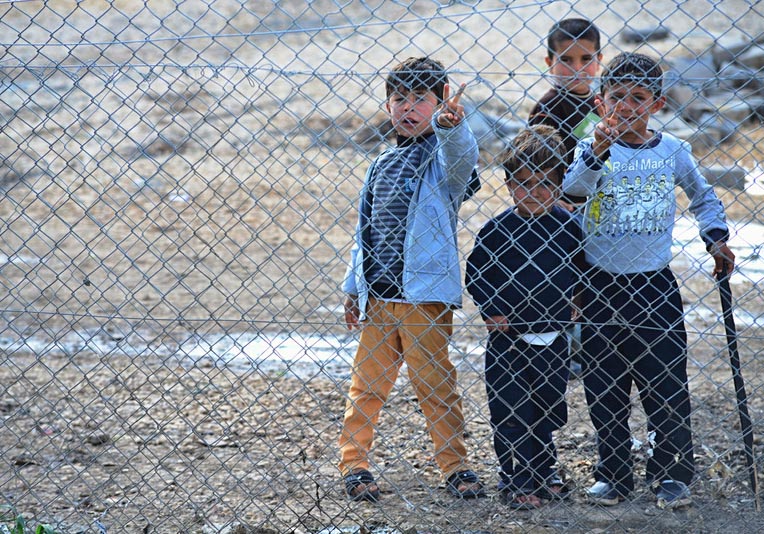
Aug 28, 2017 | Comunicados de prensa, Noticias
La CIJ dice que la declaración de Iván Velásquez como persona no grata es un fraude de ley y sin efecto legal.
La CIJ a la comunidad nacional e internacional expresa:
- Que la decisión del Presidente Morales de declarar “non grato” y de expulsar del país a Comisionado Iván Velásquez (foto), es nula “de pleno derecho” y no nació a la vida jurídica por las siguientes razones:
- Fue emitida de “mala fe” por el Presidente Morales, ya que el verdadero objetivo de la misma es obstruir a la justicia y proteger a él y a su familia; en tal sentido viola la Convención de Viena sobre el Derecho de los Tratados (artículo 26), ratificada por el Estado de Guatemala;
- Por tal razón, se trata de un acto contrario al Derecho internacional de los Derechos Humanos, que también viola el artículo 149 de la Constitución Política de la República de Guatemala;
- Nuevamente se configura el “fraude de ley“, de conformidad con el artículo 4. segundo párrafo, de la Ley del Organismo Judicial (Dto. 2-89 del Congreso de la República), ya que de conformidad con dicho artículo “los actos realizados al amparo del texto de una norma, que persigan un resultado prohibido por el ordenamiento jurídico, o contrario a él, se consideran ejecutadas en fraude de ley y no impedirán la debida aplicación de la norma que se hubiere tratado de eludir”;
- El Presidente Morales resolvió declarar non grato al Comisionado Velásquez para obstruir la justicia y provocar más impunidad; es importante recordar que la lucha contra la impunidad constituye una norma imperativa delDerecho internacional, de carácter obligatorio y que no admite derogación alguna;
- El acto unilateral del Presidente Morales atenta contra la Independencia Judicial. En menos de dos meses, es la segunda vez que el Presidente Morales comete este tipo de hecho antijurídico, ya que con anterioridad, trató de influir ilegalmente en los magistrados de la Corte Suprema de Justicia;
- Según el artículo 4. primer párrafo de la Ley del Organismo Judicial citada, “los actos contrarios a las normas imperativas y a las prohibitivas expresas, son nulos de pleno derecho”.
- Por todo ello, la CIJ pide al Ministerio Público abrir un expediente en contra del Presidente Morales y hacer todo lo que esté a su alcance, para que se deduzcan las responsabilidades penales y civiles a que da lugar, la conducta ilegal del Presidente de la República.
- La CIJ apoya y valora altamente la gestión del Comisionado de la CICIG Iván Velásquez
Ramón Cadena, Director de la CIJ para Centroamérica expresó:
“La decisión del Presidente Jimmy Morales es inaceptable y su actitud de no cumplir con la resolución que otorga amparo provisional de la Corte de Constitucionalidad debe ser acatada por él en forma inmediata. De lo contrario, estará incurriendo en otro delito.”

Aug 24, 2017 | News
Today, the Indian Supreme Court delivered a landmark judgment declaring the right to privacy an intrinsic part of the right to life and liberty under Article 21 of India’s Constitution.
The ICJ welcomed a momentous and courageous judgment, where the Supreme Court took an expansive view of the right to privacy, and held that, at its core, privacy includes “the preservation of personal intimacies, the sanctity of family life, marriage, procreation, the home and sexual orientation…”
As such, this judgment is an important step towards scrapping laws criminalizing same-sex activity in the country, the ICJ said.
“The judgment is a testament to the inspiring work of human rights activists and lawyers in India, who have shown the potential of the law to affirm human rights and equality,” said Frederick Rawski, ICJ’s Asia Director.
“The ruling could have far-reaching implications for a number of cases -including with respect to the criminalization of consensual same-sex relations – where laws, policy and practices have been challenged on the basis that they violate the right to privacy,” he added.
The judgment clarified that the right to privacy is not spatially bound and exists beyond four walls as it “attaches to the person” and is not “lost or surrendered merely because the individual is in a public place.”
Significantly, in explaining the ambit of the right to privacy, the Supreme Court held that sexual orientation is “an essential component of identity” and “equal protection demands protection of the identity of every individual without discrimination.”
The Court also highlighted that laws criminalizing same-sex activity have a “chilling effect on the exercise of the right”, posing “a grave danger to the unhindered fulfillment of one’s sexual orientation, as an element of privacy and dignity.”
Section 377 of the Indian Penal Code criminalizes voluntary “carnal intercourse against the order of nature with any man, woman or animal” and prescribes a range of penalties including life imprisonment.
In Naz Foundation v. Govt. of NCT of Delhi, the Delhi High Court in 2009 read down the application of section 377, holding, among other things, that insofar as it criminalizes consensual sexual acts, it violates Articles 21 (right to life and liberty), 14 (equal protection of the law) and 15 of the Constitution (freedom from discrimination) of the Indian Constitution.
However, in Suresh Kumar Koushal in December 2013, the Supreme Court reversed the 2009 Delhi High Court ruling, effectively recriminalizing homosexuality.
The petitioners challenged the ruling in Koushal, and in February 2016, the Indian Supreme Court referred a “curative petition” to a five-judge bench of the Supreme Court for consideration.
In today’s judgment, the Supreme Court questioned the rationale in Koushal, and expressed disagreement with the manner in which Koushal dealt with the “privacy–dignity based claims of LGBT persons.”
It also found the reasoning in Koushal flawed and unsustainable for being discriminatory towards LGBT persons by calling them “a miniscule fraction of the country’s population” and making that the basis for denying their right to privacy.
However, the Court held that since a challenge to section 377 is pending before a larger bench, its constitutional validity would be decided in the appropriate proceedings.
“The Supreme Court’s judgment is indeed historic, but the real test of its impact will be whether the right to privacy it affirms is given effect in its true spirit in individual cases, so as to ensure that laws, policies and practices meet India’s obligations under the Constitution as well as international standards,” added Rawski.
Contact:
Frederick Rawski (Bangkok), ICJ Asia Pacific Regional Director, e: frederick.rawski(a)icj.org
Ajita Banerjie, ICJ Consultant in Delhi, t: +918447784157; e: ajita.banerjie(a)icj.org
India-Privacy & section 377-News-web stories-2017-ENG (full story in PDF)

Aug 24, 2017 | News
On the one-year anniversary of the enactment of a law establishing the Office on Missing Persons (OMP), the ICJ called on the Sri Lankan Government to swiftly operationalize the Office.
The ICJ also urged the Government to set up other transitional justice mechanisms it committed to in the context of a key 2015 UN Human Rights Council resolution, without further delay.
On 23 August 2016, the OMP Act received the Speaker’s assent and became law. Even after one year, however, the Office has not been operationalized.
Organizations have reportedly made the claim that the President has unconstitutionally allocated the subject of the OMP to himself.
The Government’s failure to follow Constitutional provisions when setting up an important office such as the OMP, which has a permanent mandate to search and trace the whereabouts of “missing persons”, leaves the office exposed to future uncertainty- a move that affected communities can ill afford after a long and unjustifiable delay in setting up the OMP, the ICJ notes.
“The delay has already resulted in affected communities losing hope and faith in the Government’s transitional justice agenda, as is evident by continuous protests in the North,” said Frederick Rawski, ICJ’s Asia and Pacific Director.
The ICJ noted that in September 2015, the Government of Sri Lanka made a promise to the people of Sri Lanka and the international community, to initiate a process of reconciliation which “involves addressing the broad areas of truth seeking, justice, reparations and non-recurrence and for non-recurrence to become truly meaningful, the necessity of reaching a political settlement that addresses the grievances of the Tamil people”.
In the context of UN Human Rights Council resolution 30/1, adopted 1 October 2015, the Government of Sri Lanka made a commitment to establish four main transitional justice mechanisms, a Commission for Truth, Justice, Reconciliation and Non-recurrence, an Office on Missing Persons, an Office for Reparations and a Judicial Mechanism with a Special Counsel, amongst numerous other reforms.
Almost two years since these promises were made, only one mechanism, the OMP, has been established by law.
In March 2017, the need for implementation of these commitments related to reconciliation, accountability and human rights were reaffirmed, and a comprehensive report, followed by a discussion on the implementation of Council resolution 30/1, is due at the Human Rights Council’s 40th session in March 2019.
The Consultation Task Force on Reconciliation Mechanisms (CTF), a panel of 11 independent eminent persons appointed by Prime Minister Ranil Wickremesinghe, publicly released its final report on 3 January 2017.
The report already outlines structures and recommendations for the promised mechanisms based on country-wide consultations.
The ICJ called on the government of Sri Lanka to implement Task Force recommendations to deliver justice for victims of human rights abuse.
“The Government of Sri Lanka should make public its plans and drafts for the proposed mechanisms based on consultations, as well as a timeline for when it hopes to establish them, in order to stop further erosion of faith by the affected communities,” Rawski added.
In February, President Sirisena affirmed that he will prioritize Constitutional Reform over Transitional Justice-related reforms adding that there is a need to foster support for Transitional Justice amongst all communities.
The linkages between the two reform processes are many and one process cannot be seen independent of the other.
There is, however, very little progress on either front or a broad-based campaign to garner support for transitional justice, the ICJ said.
Two years into its tenure, the Government of Sri Lanka must take stock of its commitments and forge ahead with its reform agenda before the increasingly negative perception of the Government compromises the change it pledged and incumbency fatigue sets in, the ICJ added.
“The Government must act, and act now, to stop the disconnect between the hopes of affected communities and the lack of substantive progress of the transitional justice agenda from growing further, and deliver on its commitments before the opportunity for progressive reform is lost for good,” Rawski added.
Contact:
Frederick Rawski, ICJ’s Asia Pacific Regional Director (Bangkok), e: frederick.rawski(a)icj.org
Thyagi Ruwanpathirana, ICJ’s National Legal Advisor (Sri Lanka), e: thyagi.ruwanpathirana(a)icj.org

Aug 22, 2017 | News, Publications, Reports, Thematic reports, Video clips
The institutional political crisis in Venezuela has brought the rule of law to near collapse and severely obstructed accountability for those responsible for gross human rights violations, the ICJ concluded in a report released today.
The ICJ’s report Achieving Justice for Gross Human Rights Violations in Venezuela found that the authorities led by President Nicolás Maduro have undertaken a sustained campaign to take control of the Supreme Court of Justice and, with the Supreme Court’s support, suspend the constitutional powers of the former National Assembly and subvert efforts to hold the executive to account within a rule of law framework.
“Rule of law in Venezuela has been replaced by rule of arbitrary executive power,” said Alex Conte, ICJ’s Global Accountability coordinator.
“The Constitution is disregarded, the judiciary cannot exercise its independent function, and the separation of powers is non-existent,” he added.
The ICJ’s report concludes that the human rights situation in Venezuela has deteriorated rapidly in recent years, particularly since 2014.
Extrajudicial and arbitrary executions, the practices of torture and ill-treatment, arbitrary detention, the trial of civilians by military courts and the criminalization and prosecution of political and social dissent have only increased.
“The political context of extreme polarization and the breakdown of the rule of law, along with the judiciary’s lack of independence, have severely obstructed accountability for those responsible for gross human rights violations,” said Conte.
“Victims and their families are left without justice.”
This situation has been further exacerbated by the recent dismissal of Venezuela’s Attorney General, described by the ICJ as a politically motivated act that violates international standards and removes one of the last institutional checks on executive authority and destroys one of the few glimmers of hope for an end to impunity for human rights violations.
Also troubling is the establishment by the new Consituent National Assembly of a ‘Truth Commission’, which the ICJ fears will be a politically manipulated instrument aimed at entrenching impunity for the executive and, when combined with President Maduro’s declaration that legal immunity will be stripped from National Assembly members that have opposed him, a tool to silence Government opposition, rather than to help discharge Venezuela’s duty to promptly, independently and effectively investigate allegations of gross human rights violations.
“Venezuela’s situation of entrenched impunity cannot be resolved without the establishment of an independent judicial authority that can address human rights violations, deter further violations and help bring back the rule of law,” Conte added.
Contact:
Alex Conte, ICJ Global Redress and Accountability Initiative, t: +41 79 957 27 33; e: alex.conte(a)icj.org
Federico Andreu Guzman, ICJ Senior Legal Adviser, Americas, e: Federico.andreu(a)icj.org
Venezuela-GRA Baseline Study-Publications-Reports-Thematic reports-2017-ENG (full report, PDF)
Read also:
ICJ Position Paper on the Dismissal of the Attorney General of Venezuela (August 2017)
ICJ Report, Venezuela: The Sunset of the Rule of Law (October 2015)
ICJ Report, Strengthening the Rule of Law in Venezuela (November 2014)

Aug 17, 2017 | Editorial, Noticias
Un editorial de opinion de Karolina Babicka, Asesora legal, Programa Europa CIJ
En este momento, muchos niños en España se encuentran retenidos en centros de detención inmigrantes para adultos, a riesgo de ser expulsados a sus países de origen.
Otros niños migrantes están viviendo en las calles de Madrid y de otras ciudades españolas, algunos de ellos enfermos, y a otros no se les permite solicitar asilo.
Esto es así porque estos niños no son españoles y las autoridades españolas no les consideran menores de edad sino adultos.
En el marco de nuestras actividades de capacitación y creación de alianzas con abogados y organizaciones de la sociedad civil para mejorar la defensa de los derechos de los niños migrantes en algunos países europeos, nuestra entidad colaboradora en España, Fundación Raíces, ha denunciado la difícil situación de la infancia migrante en España.
En 7 casos de niños migrantes en situación de elevada vulnerabilidad, Fundación Raíces y otras organizaciones españolas han solicitado al Comité de las Naciones Unidas de los Derechos de los Niños medidas provisionales, es decir, un mandato urgente a las Autoridades españolas, con el objetivo de evitar que estos niños sufran un daño irreparable.
En Estados que, como España, forman parte del Protocolo Facultativo de la Convención de Derechos del Niño relativo a un Procedimiento de Comunicaciones, el Comité de Derechos del Niño tiene la capacidad para examinar comunicaciones individuales hechas por o referidas a un niño o un grupo de niños en las que se reclaman vulneraciones de sus derechos contenidos en la Convención.
A la espera de una decisión sobre el fondo, el Comité puede solicitar al Estado parte la implementación de medidas provisionales con el objetivo de evitar un posible daño irreparable a la víctima o víctimas de las supuestas violaciones.
Uno de los 7 casos mencionados se refiere a A.D., un menor de 17 años procedente de Malí que llegó a España en marzo de 2017.
Fue internado en el Centro de Internamiento para Extranjeros de Madrid, siendo considerado adulto por las Autoridades españolas, las cuales ignoraron la documentación original y oficial que A.M. recibió posteriormente de su país de origen.
El Comité de la ONU reaccionó rápidamente a las peticiones de estas organisationes y durante los últimos meses ha solicitado al gobierno de España la implementación de medidas provisionales en los 7 casos presentados.
Según el Derecho Internacional, el respeto a las medidas provisionales es fundamental para la protección de los Derechos Humanos. La legislación y jurisprudencia internacionales afirman que el no cumplimiento de tales medidas provisionales por parte de un Estado parte constituye una violación de sus obligaciones legales internacionales.
La naturaleza obligatoria de las medidas provisionales ha sido corroborada por el Comité de Naciones Unidas de los Derechos Humanos en su Observación General Nº 33 sobre un Procedimiento de Comunicaciones Individuales.
Sin embargo, el gobierno español ha ignorado estas peticiones del Comité y no ha llevado a cabo las medidas provisionales solicitadas. El gobierno de España ha violado por tanto una obligación legal internacional a la que se había comprometido de manera voluntaria; poniendo así en riesgo el bienestar y la vida de muchos niños en situaciones de elevada vulnerabilidad.
La Convención de las Naciones Unidas de los Derechos de los Niños obliga a los Estados a considerar el interés superior del menor por encima de cualquier otra cuestión. En cambio, las autoridades españolas afirman que en estos casos los individuos no son niños sino adultos.
Por si existiese algún tipo de duda, el derecho internacional afirma que los Estados deben dotar al individuo del beneficio de la duda y tratarle como un niño o una niña, hasta que efectivamente pueda probarse lo contrario.
Por su parte, el Tribunal Supremo de España ya ha expresado su preocupación por el procedimiento de determinación de la edad llevado a cabo por las Autoridades españolas en más de 10 sentencias, al igual que el Defensor del Pueblo español y el Alto Comisionado de las Naciones Unidas para los Derechos Humanos.
Recientemente, 6 organizaciones de la sociedad civil española (Amnistía Internacional, Fundación Raíces, el Consejo General de la Abogacía Española, el Servicio Jesuita a Migrantes, Noves Víes y Save the Children) han solicitando al gobierno español que cumpla de manera inmediata con las medidas provisionales solicitadas por el Comité del Niño en cada uno de los 7 casos.
La CIJ está formando a abogados de 7 países de la UE, incluida España, para la presentación de casos ante los mecanismos internacionales de protección de los Derechos Humanos, como el Comité de la ONU de los Derechos de los Niños, cuando no existe un remedio efectivo a nivel interno.
El respeto a las obligaciones internacionales y la protección de los derechos de los niños deberían constituir prioridades para cualquier Estado parte de la Convención de Derechos del Niño.
El gobierno español debe hacer lo propio e implementar inmediatamente las medidas provisionales solicitadas por el Comité de los Derechos del Niño.
Foto: Plan International









